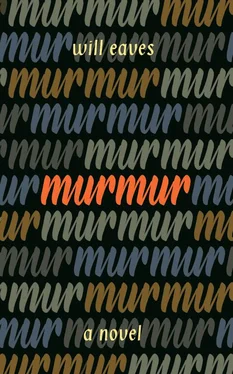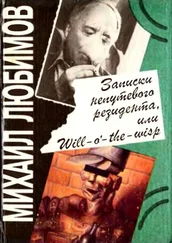Perhaps all mothers feel the same way. Mine did. After my revelation, almost the first thing she said was that she had never wanted me to follow John to the same school. It was “wrong for me,” she said. And perhaps it was. It was certainly frightening at times, and of course the masters were disappointments, to themselves and others. I was nervous whenever I parsed something well or found out a problem—my first readings in Euler, say. The pleasure was like sunny wind in April, it blew itself out; and each triumph bordered on a faintness of heart at the thought of what might come next—failure, punishment—and what might not. Christopher solved that for me, because his presence taught me how to be on my own, and if I had not gone to Wargrave I would not have met him, or welcomed my solitude, so that I cannot honestly say I regret any of it.
Tonight, I’m having cheese on toast. Sunday evening fare at Wargrave. Pleasure’s danger is that it echoes former pleasures and produces a likeness that fails on inspection, in which case don’t order the inspection! Cheese on toast, a pickled onion, and an apple before bed, that’s the ticket. I find malic acid to be an effective sedative.
*
I don’t know that I will ever recover my build. My thighs and calves are roughly the size and shape they were before the Stilboestrol, but now they have a different consistency. They’re flabby. I am vain, no doubt. I wear a vest, but then so do all men, and I have never enjoyed looking in mirrors. Outwardly, there is nothing peculiar. Inwardly, too, the pulse of fear has stopped and its murmur, taking my thoughts down as if by dictation, has faded. I am left with the images, the semi-swoons, and if I pay attention to the tinnitus in my right ear I can just hear the council of the machines deprecating half a show, half a memory, how unacceptable the half of it is, etc.
Therein lies a conundrum for thinking machines. They can do nothing by halves. In theory, they will be made to remember everything, and with such a lot to remember they might not grasp how important it is, sometimes, for persons to forget. That is a kind of demonstration of Wittgenstein’s saw—his Witticism, let us call it—about answers to questions of science not answering the questions of life.
But an educable machine would be no mere store. It would sift and discard, and discriminate, as a child does. That granted, one finds oneself treating mechanical memory as a normal feat of reconstruction, and then the difference between human and machine lessens considerably, because for both creatures remembering becomes evaluative and processual, rather than crudely restorative.
In my own case, the whole question of forgetting is problematic. I’m sure I have the fragments of things, the figments, somewhere. I’m sure most people do, even the senile. Nothing is forgotten in that sense. What I lack, and this is the great change to have been worked in me, is the capacity to organize those fragments properly. (But if they are not organizable, how can I be said to remember them?) Between the walls of his study, with its eyeless maps and Degrees, the kindly Dr. Stallbrook says that this is a symptom of shock. Shell-shocked memories exist in a twilit state.
One is left with the rest of the world. I told Raymond that it is satisfying to mend things, as well as people, and that music gives a great deal of comfort to almost everybody. At which he pointed to my violin, lying open in its case these last seven days, asked if he could have a go, and gave a most spirited, lovely rendition of “Over the Mountains”! I have the Ferrier recording.
*
Now if I had had a son like that—particularly like Ray—I would not have wanted to send him away, either. When we sit together, it is as if our two lives have blended in time and are no more than the same life at two different stages.
The tax on old pleasures, those I have come to value more and more—food, sunlight on the common, listening to familiar music—is that they are shadowed by discoveries. One has had the chance to do so much “not in the ordinary line” that it is painful to find oneself of use in this new and ordinary way.
*
I think empathy is a treated, enhanced version of sympathy, but I am not sure it exists. We can’t be in someone else’s emotional shoes. We don’t ever feel what they’re feeling. What makes us cry or makes our heart race is probably just this intense awareness of “not quite”—of being so close to feeling what they’re feeling. I’d go so far as to say that empathy is a sort of artifice. And what, one might ask, is wrong with that?
*
To Brighton yesterday, at last, for which bright skies.
I went to the fortune-teller’s stall on the front pier and before I knew it I was outside again, being fussed over by Anthony and his wife, Elizabeth. I’d fainted—the first time in years. I must have seen blood, though I examined myself thoroughly afterward for cuts and grazes and found none. I had no reading, that much is clear, because the shawled lady came out after me and pressed my shilling back into my hand.
It has left me shaken. On the train on the way back, a little sick with the seaside’s cure-all remedy—fish and chips—Elizabeth said that I looked as if I’d seen a ghost, and the moment she suggested it I seemed to hear someone else say, “Why on earth did you do it?”—though it was not exactly the voice of anyone I knew, or at least not the voice of any one person, and the voice was not angry—and I answered back, quite honestly, “Because I didn’t think it mattered.”
What did I do? What am I supposed to have done? What have I not done, yet?
Why my mind alights on these imponderables I’m not certain. They seem to be puzzles that are “unsolvable” in the mathematical sense of that word. Not puzzles that absolutely lack a range of answers, but ones that we cannot in practice find answers to—ones that a procedure or a process will not clarify in any humanly helpful stretch of time. I think we have been asking these simple questions since we first killed living things and ate them, perhaps since we first woke up and knew that the day was the day. It probably is true that if you know where something is at any locatable point in the universe and you have a full description of the forces working on it, then you can in principle work out where it will be many years from now. But there is just not the time to make that calculation. It isn’t algorithmically compressible, and therefore the puzzle is unsolvable. I should add, by the way, that I see quantum uncertainty in a similar light—i.e., as something practically unverifiable, not as a problem that is inherently mysterious. The mystery resides in the fact that the observer who supposedly acts on wave function to bring about its collapse into stability does so at intervals. But if the observer could be made to carry on staring at the system—ever so rudely, as it were—then its evolution might slow to a halt. In other words, history happens in the gaps. We can’t in practice keep on looking at something all the time and expect to know what it will do next. A total observation yields nothing. If you do look at circumstances that way, you end up with a person or a situation that is stuck in time, and how they are ever to be sprung from that I do not know. Some sort of induced calamity by one’s own hand or another’s. A fluke from outer space.
Or a bit of a shock. When I heard that voice asking why I’d done whatever it is I’m supposed to have done, I had a strong memory of asking the fortune-teller if I would ever meet Christopher again, and she said yes, we are all made of the same materials, we are atoms, bits of Morse, and you are breathing him in even now. Her shawl smelled maternal—a hint of bergamot and talc—but her eyes were like Indra’s net, inhumanly compound, and after that I must have passed out.
Читать дальше












